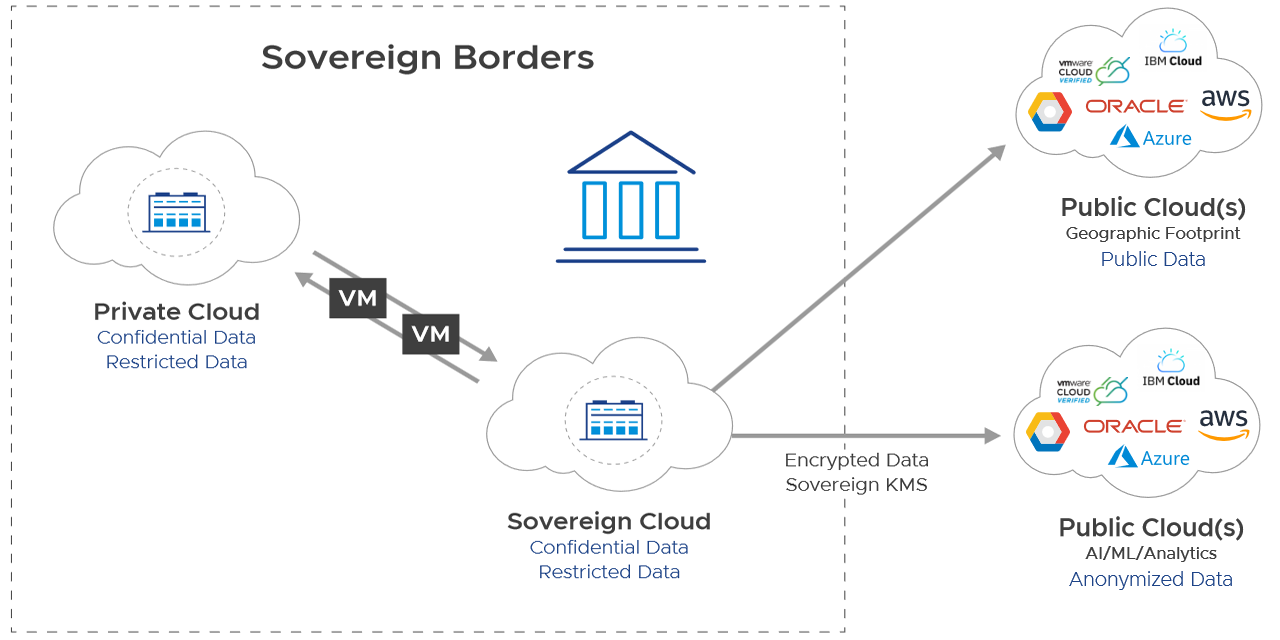In recent years, the idea of sovereign cloud services has emerged as a critical movement in the domain of tech infrastructure. As companies gradually recognize the importance of data autonomy, more firms and state agencies are adopting cloud services that ensure their information stays within their own law jurisdiction. This transition is not just about compliance; it represents a growing understanding of data protection, protection, and the need for transparency in how private data is managed.
The increase of national cloud technologies is driven by multiple factors, including compliance demands, geopolitical concerns, and the desire for greater control over digital properties. In an era where information leaks and cyber threats are rampant, the capability to retrieve and govern local data has become paramount. This growing demand is reshaping the field of cloud computing, prompting suppliers to create and offer solutions that adhere to the tenets of self-governance, protection, and trust. As companies navigate this intricate context, sovereign cloud solutions are swiftly gaining traction, offering a more protected and conforming future for data governance.
Defining Sovereign Cloud Solutions
National cloud solutions refer to cloud computing services that are designed to adhere to the distinct regulatory and legal obligations of a designated country or region. These solutions provide businesses and authorities with the capability to save, manage, and process data within their own national borders. By complying with local data protection laws and sovereignty issues, sovereign clouds guarantee customers that their data is treated in a lawful manner, diminishing risks associated with international data transfers.
The idea emerged from increasing concerns about data privacy, security, and the possible misuse of information by external entities. As data breaches and surveillance have become more common, entities are increasingly prioritizing the protection of sensitive intellectual property. Local cloud services allow companies to maintain control over their critical data, addressing fears related to third-party access or governance by foreign jurisdictions. This has become especially vital for fields like finance, healthcare, and public services, where regulatory compliance is critical.
Furthermore, sovereign cloud solutions often include local support and features that are customized to the specific needs of the area. These services provide customers with superior performance and reliability, as they are adjusted for the local setting. In an time where digital transformation is vital for competitiveness, local clouds offer a way to utilize the benefits of cloud computing while assuring that data sovereignty and compliance are metaphorically integrated into the foundation of their digital infrastructure.
Key Benefits of Sovereign Clouds
A major advantages of sovereign clouds is improved data sovereignty. Organizations can confirm that their data is stored and processed within specific legal jurisdictions, aligning with local data protection regulations. This is particularly critical for fields such as healthcare and finance, where confidential data handling is subject to strict laws. By adopting sovereign clouds, businesses can mitigate the risk of data breaches and legal complications stemming from cross-border data transfers.
A further significant advantage is boosted security and control over data. Sovereign clouds permit organizations to deploy infrastructure overseen by local providers who have a deep understanding of the local landscape and requirements. This localized approach not only bolsters security measures but also fosters greater trust among clients and investors. Companies can establish customized security protocols and governance policies designed for their specific needs and regulatory obligations.
In conclusion, sovereign clouds contribute to increased resilience and operational continuity. By utilizing infrastructure within the same jurisdiction, organizations can minimize latency and ensure faster access to data and applications. Furthermore, in times of political tensions or natural disasters, having a local solution can secure business operations against interruptions. This dependability is increasingly important as organizations seek to maintain seamless operations in a quickly evolving digital landscape.
Trends in the Market and Upcoming Perspectives
The adoption of sovereign cloud solutions is steadily increasing as businesses strive to meet national data regulations and tackle privacy concerns. More businesses are realizing the importance of keeping critical information within their own borders, leading to a growth in demand for cloud services that align with national regulations. This change is also motivated by increasing awareness of security incidents and a greater focus on security, prompting businesses to favor local data housing and management of data.
As more state authorities and sectors enact strict data management rules, the market for national cloud services is anticipated to expand substantially. Providers are responding by creating cloud infrastructures that guarantee data residency and compliance with local regulations. hostino.ma is bolstered by technological advancements, such as enhanced encryption and security protocols, which additionally comfort organizations in their decision to embrace sovereign cloud models.

As we look forward, the future of national cloud services is bright, with projections indicating robust growth in this sector. Partnerships between cloud providers and local entities are growing, fostering innovation and driving more customized solutions. As companies increasingly prioritize regulatory adherence and data security, the national cloud sector is poised to become a fundamental part of the global cloud landscape.
